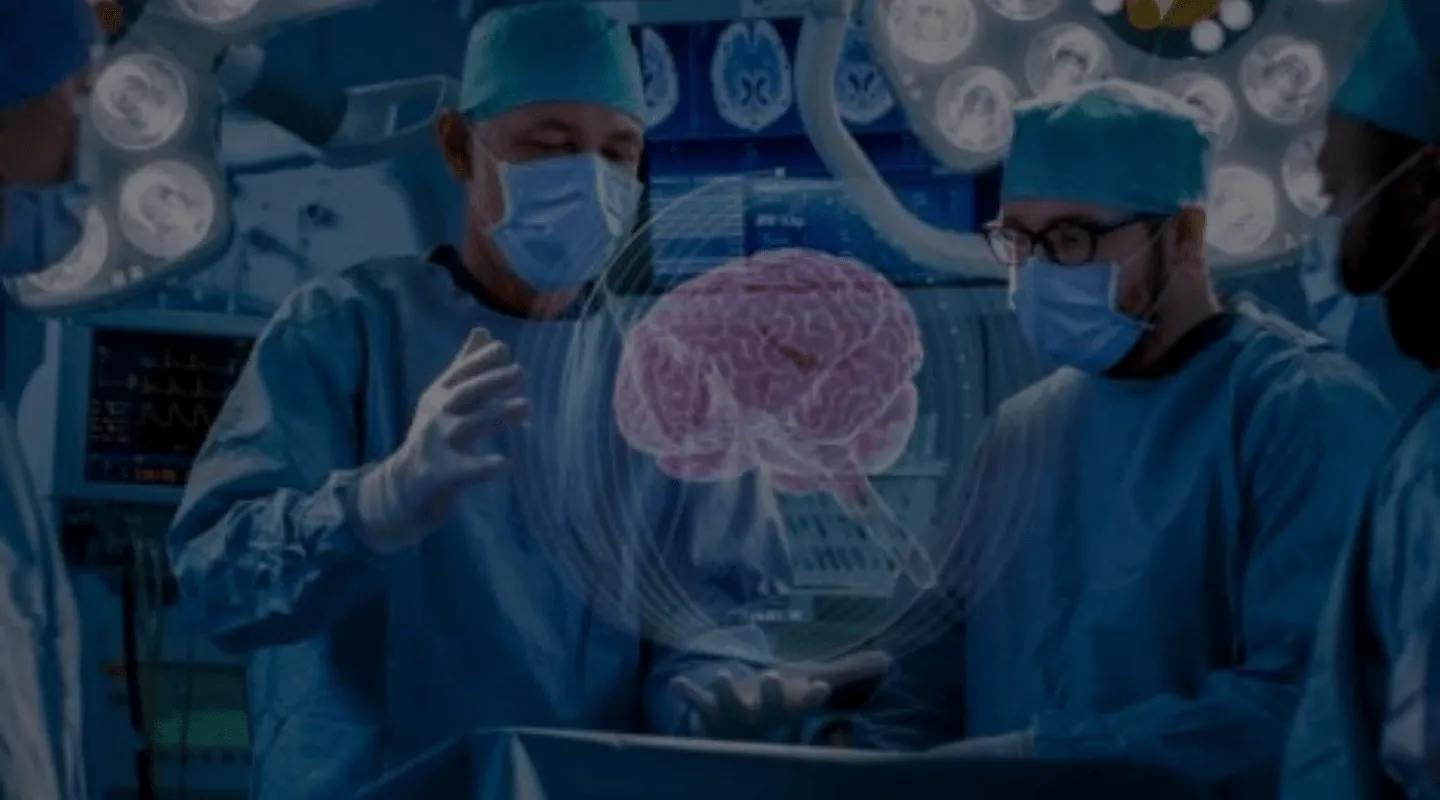
Neurology
Management of nervous system disorders with innovative interventional or surgical care
Neurosurgery in Tunisia: our interventions
Our team of neurologists in Tunisia will diagnose and offer you the best surgical treatment according to the pathology. Our neurosurgery operations target the three main parts of the nervous system: the central nervous system, the peripheral nervous system and the autonomic nervous system. Here are some of the neurosurgical interventions that we regularly perform in Tunisia:
Cranial Neurosurgery
This discipline involves intervention in the case of a hematoma or hyperpressure in the cranial cavity. Cranial neurosurgery also makes it possible to treat a tumor or any other anomaly detected in the patient’s cranial cavity.
Vascular Neurosurgery
The aim of this field is to treat pathologies affecting the blood vessels located in the brain. Among the most frequently treated diseases in this discipline are aneurysms (dilation of the artery walls), AVMs (or arteriovenous malformations), and various types of artery-related problems.
Pediatric Neurosurgery
This specialty is dedicated to the study, diagnosis and treatment of brain diseases in children. A multidisciplinary team is at the service of the child in order to provide him or her with the best possible care in adequate conditions.
Spinal Neurosurgery
Spinal neurosurgery aims to analyze and treat problems and pain related to the spine and spinal cord. Its aim is in particular to decompress nerves or to treat herniated discs.
In addition to the operations mentioned above, our specialists will ensure that you receive the best care for any functional neurological problems, including disorders of the body related to a failure of the nervous system. All treatments are carried out under very strict safety conditions and are supervised by renowned specialists.
Experienced Neurologists in Tunisia
By scheduling your neurosurgery operation in Tunisia with Tunisie Destination Santé, you will be put in contact with the best specialists in the country. Our multidisciplinary teams, specialized in neurosurgery and neuroradiology, work together to offer patients the best possible care. You will be cared for by internationally renowned neurologists, and your operation will take place in ultra-modern medical facilities. You will be welcomed in a safe and comfortable setting, and you will be followed by a competent and always smiling team.
What does a neurologist treat?
- Alzheimer’s disease;
- Amyotrophic lateral sclerosis (ALS or Lou Gehrig’s disease);
- Back pain;
- Brain and spinal cord injury or infection;
- Brain tumor;
- Epilepsy;
- Headaches;
- Multiple sclerosis;
- Parkinson’s disease;
- Peripheral neuropathy (a disease that affects your nerves);
- Pinched nerves;
- Seizures;
- Stroke;
- Tremors (uncontrollable movements);
Neurological Examination and Procedures
- Mental state;
- Speech;
- Vision;
- Strength;
- Coordination;
- Reflexes;
- Sensation (how much you feel things);
They may have a good idea of your diagnosis from the examination, but you will probably need other tests to confirm it.
Depending on your symptoms, these may include:
- Blood and urine tests to check for infections, toxins, or protein disorders
Imaging tests of your brain or spine to check for tumors, brain damage, or problems with blood vessels, bones, nerves, or discs; - A study of your brain function called an electroencephalogram or EEG. This is done if you are having seizures. Small patches, called electrodes, are placed on your scalp and are connected to a machine by wires. The machine records the electrical activity in your brain;
- A test of communication between a nerve and the muscle it works with called an electromyogram or EMG. This is done with electrodes on your skin or a needle inserted into a muscle;
- A series of tests called evoked potentials to measure your brain’s response to stimulation of your hearing, vision, and certain nerves. These are similar to an EEG, except your doctor will make sounds or flashes to see how your brain reacts;
- A small amount of fluid is taken from your spine to check for blood or infection. This is called a lumbar puncture or spinal tap;
- A muscle or nerve biopsy to check for signs of certain neuromuscular disorders. A small amount of tissue is removed and examined under a microscope;
- A Tensilon test can help diagnose myasthenia gravis, a disease that weakens your muscles. Your doctor gives you a medication called edrophonium (Tensilon) to see if it strengthens certain muscles and temporarily relieves your weakness;
Contact TDS Request
With Tunisie Destination Santé, everything is done to simplify the procedures for organizing your medical stay in Tunisia as much as possible. For any request for information or to prepare your medical file, simply contact us by phone or via our online form. Our team is always at your disposal and will be happy to provide you with all the information you need.